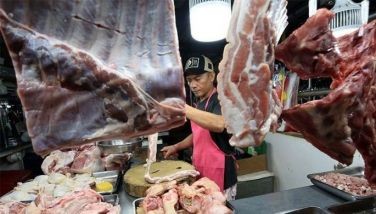Nestlé opens coffee center in Batangas
MANILA, Philippines - Coffee farmers in Luzon can now gain better access to the latest coffee farming techniques and Robusta seedlings as Nestlé Philippines Inc. (NPI) launched its newly-completed Nestlé Lipa Integrated Commercial Center (Nestlé LICC) last month in Lipa City in Batangas.
The Nestlé LICC is only the second of its kind the Philippines, the first being the Nestlé Experimental and Demonstration Farm (NEDF) in Tagum City, Daval del Norte. Similar to NEDF in Tagum, this five-hectare, P25-million facility will serve as one-stop shop for coffee farmers. It will house a Robusta seedlings production nursery, a local R&D center for new coffee selections, training and techno-demo center, a buying station and a composting facility for organic fertilizer.
“We intend to replicate the success of our first Nestlé Experimental and Demonstration Farm in Tagum, Davao, which has helped farmers mostly within the Mindanao region to set-up and to sustain their coffee farms,” said Arthur Baria, agriculture head of NPI. “The NEDF in Batangas has the capacity to produce 500,000 seedlings over the next year but can accommodate as much as 1,000,000 seedlings over time. It is also key to further promoting our Nestlé Better Farming Practices which adhere to the principles of the Sustainable Agriculture Initiative (SAI) and the 4C (Common Code for the Coffee Community).”
Regular training programs that will be provided by the Nestlé LICC include coffee technology training for new farmers, coffee specialist training for large-scale coffee plantation personnel and Department of Agriculture technicians, and on-the-job training that focuses on the end-to-end technology of coffee growing.
Annual local demand for coffee beans is currently pegged at 64,000 metric tons and valued at an estimated P6 billion. The Philippines however currently produces only 20,000 metric tons. The Calabarzon region is one of the biggest coffee producers in the country, hosting coffee farms growing Arabica, Robusta and the local Liberica beans.
Nestle, the biggest buyer of coffee in the country with an estimated 80 percent of the entire Philippine coffee produce, noted that demand is still growing.
“There has been a steady rise in local coffee consumption” said Edith De Leon, senior vice president and head of corporate affairs at NPI. “This is what drives us to fuel the growth of the coffee industry so that the Philippines can attain self-sufficiency. We look forward to the time when our coffee will come from Philippine growers.”
- Latest
- Trending































